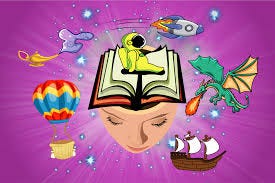The greater intellect one has, the more originality one finds in men. Ordinary people find no difference between men. - Pascal, Pensees, Sec. 1.7
Pascal was ahead of the curve in some respects. The notion of whether or not a more enlightened population would become more diverse or less was one of the early considerations of the enlightenment. For those that were occupied within subjects surrounding math or science the view that better answers kept coming up let them conclude smarter people would all agree. For those in other vocations there didn’t seem to be a direct correlation between intelligence and the conclusions one came to.
It was a running debate for better than a century. With an increasingly large segment of the population, especially those that were becoming more fiscally independent, leaning towards the scientific conclusion it pushed into most political circles. The argument that intelligence and conformity tended to align. Science would produce correct answers and that could be applied to any subject regardless of how plausible it was to produce repetitive testing.
If there was something that was being missed, Pascal had hinted at, it was in most creative ventures those with higher creativity tended to become more different as they were allowed to pursue their own interest. It wouldn’t be uncommon today to say that a student who showed creativity probably had a very active mind. But for the shift into a more scientific age the argument had always worked the other way around. Trying to view things randomly wasn’t seen as a virtue. It was some money you simply couldn’t focus properly.
It’s a division that still exists now. For too many that try to study public policy or matters of society at the macro level we still generally tend to move towards those that try to find a mathematical formula on how to proceed. It isn’t a left or right issue either. Both have been equally guilty of trying to propagate the idea that if everybody simply was smarter they’d all agree with their own viewpoint.
If there was something that had broken it up at least marginally, towards the end of the 18th century, roughly 100 years after Pascal’s observation, there emerged an increasingly common observation that as new viewpoints entered most political systems there seemed to be greater diversity of views rather than fewer. This wasn’t a case of less intelligent people entering public life, it was simply an increase of different perspectives and circumstances being allowed into public life. All of a sudden there was a different frame of reference that undermined the idea that certain things could be made scientific.
Even among those that claim to have the same dispositions as far as ideological orientation, they increasingly disagreed because of their own life experience or the particular environment that they came from.
It also ended up presenting a different conundrum. Having a political class that was more diverse and more intelligent also meant that trying to produce singular answers became a near impossibility. If one actually engaged in intelligent debate with different individuals you were more likely to see greater distance between the different proposed solutions then with a less intelligent group.
Did this mean societies were inherently doomed to being pulled apart if you allowed more intelligence into the conversation?
The more unintelligent a man is, the less mysterious existence seems to him. - Arthur Schopenhauer
The better way to approach the situation, if you actually have legislatures that are filled with those seeking answers you’re more likely to have multiple options. It isn’t a case of determinism ruling the day. It also means that most enlightened politics will likely allow for different means of going forward to be pursued at the same time. Allowing a greater chance at least something will work, as well as allowing populations to move in the way they wish, ergo limiting potential negative feedback.
For many this was the attack on any centralized executive. Regardless of what it intended to do, a one size fits all approach almost never worked. Creativity and imagination meant the different approaches would have to be pursued depending on the particulars one was looking at. On this front more intelligence actually served a greater purpose than trying to find a singular correct answer that everybody agreed to.
It’s probably one of the biggest tragedies of modern politics that we tend to move in the exact opposite way of thinking. Largely due to academia, but also partially because of media think tanks, the need for intelligence to view everything through everybody moving in the same direction not only dominates most political thinking, but it’s become something of a badge of honor. Everybody plays for a team; similar to sports. The idea that two people might have the same philosophical disposition and decide to pursue different courses is not a sign of creativity, but a sign of disloyalty.
In many regards it’s become a case of hubris that those within vocations specifically designed to find solutions see it as a slight if they don’t have the ability to be the one with the answer. It’s extremely difficult for those with that personality to accept that their solution might work in one case, but not in several other cases.
It would be a great step forward if we recognized the intersection between creativity and intelligence again. The need for those who can think differently and come up with diverse solutions so that we don’t get caught taking avenues that end up becoming dead ends. Too often that has been the problem when you put all your trust in a singular line of thinking.


